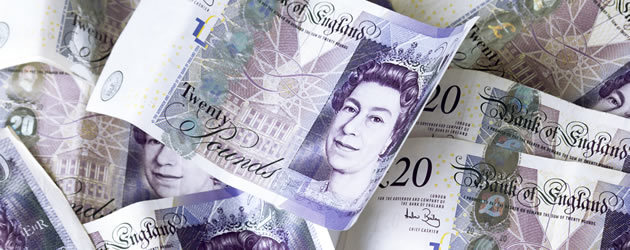Euro Pound (EUR/GBP) Exchange Rate Slips, German Growth Outlook Muted
The Euro Pound Sterling (EUR/GBP) exchange rate is subdued today and trading around the day’s opening levels of £0.8746.
February’s German ZEW economic sentiment index improved by more than forecast, coming in at -13.4, up from the previous -15.
However, the ZEW current situation survey slipped further than forecast, from 27.6 to 15.
ZEW President Professor Achim Wambach said of the results:
‘At the moment, we do not expect a rapid recovery of the slowing German economy. The economic situation in Germany has been weak, especially in the manufacturing sector. The figures for industrial production have once again seen a decrease, incoming orders are stagnant and foreign trade currently provides no fresh impulses. All of this is reflected in the fact that the assessment of the current situation has experienced a considerable decline. For the next six months, the financial market experts in our survey do not expect any improvement.’
Earlier: Pound (GBP) Muted despite Buoyant Labour Market
The Euro Pound (EUR/GBP) exchange rate slipped this morning following the release of the UK’s latest employment data.
The UK unemployment rate remained steady at 4%, its lowest level since the period of December 1974 to February 1975.
The level of employment continued to rise, and is now at a record high of 32.6 million people in work between October and December 2018.
Data showed that average earnings including bonuses did not rise as expected, however, remaining unchanged at 3.4%, although excluding bonuses wages grew by a better-than-expected 3.4%.
Despite unemployment hitting multi-decade lows and wages growing at the fastest pace in a decade, sentiment for Sterling remained dampened.
Brexit anxieties increased following Japanese carmaker Honda’s announcement that it plans to close its factory in the UK, putting 3,500 jobs on the line.
EUR/GBP Outlook: Will the Euro Slip on German Inflation?
This afternoon, the EUR/GBP exchange rate could slip following a speech from the European Central Bank’s Peter Praet if his tone is dovish.
As there is a lack of UK economic data, it seems likely that the pairing could fluctuate as the UK’s departure date from the European Union creeps closer.
The single currency could remain weighed down at the start of Wednesday’s session following the release of Germany’s Producer Price Index.
Forecasts suggest that inflation will contract for the second month in a row, and annual inflation will show the slowest rate of growth in eight months, which could cause the Euro to slip.



